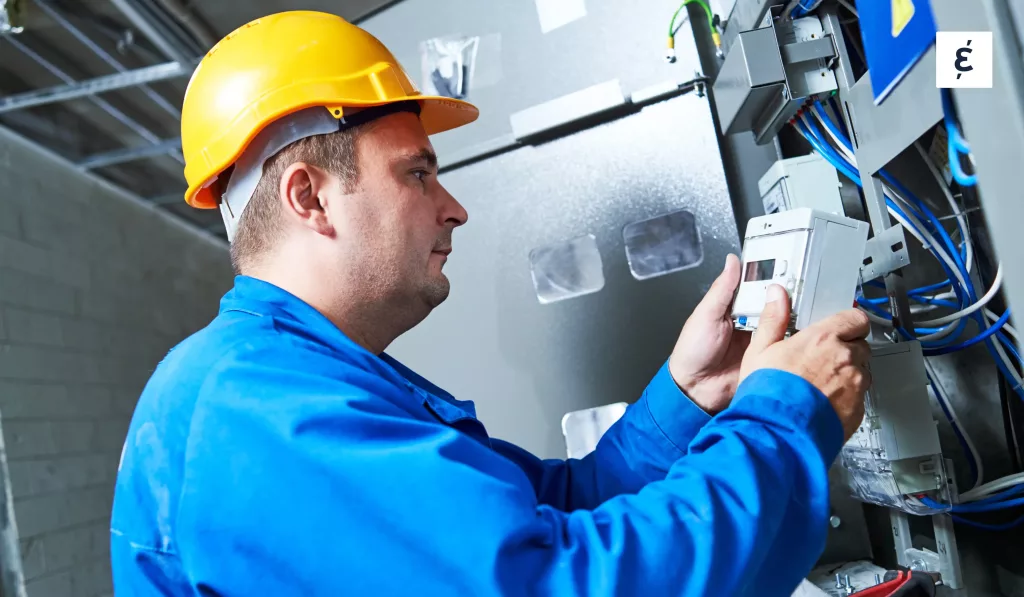
New reputation report from stakeholder intelligence company Caliber also shows the energy sector’s reputation recovering in the US – but falling in the UK.
Lowering prices should be a bigger priority for the energy sector than transitioning to clean energy or reducing emissions, according to people surveyed for stakeholder intelligence company Caliber’s 2023 Global Energy Reputation Report, released today.
A survey of over 38,000 respondents in seven countries around the world, the report reveals that 41% of people say keeping energy prices low to ensure wide affordability should be the sector’s top priority. In contrast, 39% say it should be reducing carbon emissions and 35% say it should be transitioning from fossil fuels to renewable energy.
Keeping energy prices low outranks other answers in three of the seven countries – Brazil, the US and the UK. In fact, almost two in three people (60%) in the UK say it should be the sector’s top priority.
The Energy report also reveals the impact of the cost-of-living crisis on the energy sector’s reputation in the UK. Trust & Like Scores – how Caliber measures the strength of a sector’s reputation – have fallen significantly there since 2021, when Caliber did a similar survey. The mean Trust & Like Score for companies in the UK electricity industry fell three points to 57 (out of 100), while for oil & gas companies it fell 7 points – to 51.
By comparison, there was no change in Trust & Like Scores for electricity and oil & gas companies globally. As in 2021, both sub-sectors scored 64. The US energy sector saw the biggest rises among the seven markets: the Trust & Like Score for US electricity companies rose 4 points to 73, while for oil & gas companies it rose 4 points to 66.
People in the US and the UK are also far apart in their perceptions of the energy sector since the global energy crisis began in 2021. Whereas 38% of Americans perceive the sector as better than before the crisis, only 19% of British people do – while almost half (49%) think the industry is worse than it was two years ago.
“The global energy crisis turned up the heat on energy companies, accentuating their role in the climate crisis and geopolitics. In the past couple of years, we’ve all felt the impact of higher wholesale prices in the form of bigger household energy bills.
Our report shows the impact this has had on the sector’s reputation. Despite their efforts to reduce emissions and transition to clean energy, energy companies have the same reputational rating as they did two years ago – and in some countries, reputations have taken a significant hit.
Indeed, the sector’s stable overall score doesn’t just flatter it – it’s a warning against complacency. Our report shows that public opinion can quickly sour – and reputations can easily decline.”Shahar Silbershatz, CEO/Co-founder of Caliber Tweet
Caliber’s report also reveals how few people have taken recent action to increase their household energy efficiency. Fewer than half of global respondents (45%) say they’ve reduced their use of lights or other energy-consuming devices or appliances or have switched to energy-efficient lightbulbs.
Barely a quarter (26%) have started paying attention to energy marks when buying home appliances or electronics. And fewer than one in five (19%) have made their home more energy-efficient by installing a better thermostat, boiler or insulation.
The report also found that just one in three (33%) people know the exact source of energy that powers their home. While people in Japan (14%) and the UK (21%) are the least certain, those in the US (40%) and Brazil (55%) are the most.
And the older people get, the more likely they are to know exactly what fuels or lights their home. Only a quarter of 18-24-year-olds (27%) say they do, compared to almost half of 65-75-year-olds (44%). That may be because the latter are more likely to be paying higher household energy bills and dipping into their retirement funds to do so.
“To mitigate negative perceptions and potential reputational harm in the future, energy companies must work harder to educate people about how energy is generated and what they’re doing to make energy cheaper and cleaner. They also need to assume more responsibility for their impact on society and demonstrate what they’re doing to meet people’s expectations – such as educating them about money-saving energy consumption.”
Shahar Silbershatz, CEO/Co-founder of Caliber Tweet
The report is based on insights gathered from stakeholders in the energy sector in 2023. Between 31 July and 28 August, Caliber surveyed 38,100 people in its global index markets (Brazil, China, France, Germany, Japan, the UK and the US).
The data also includes 12,307 unique ratings of 130 companies across 13 markets and data from Caliber’s ongoing tracking of stakeholders in its index markets between 1 January and 28 August.
The respondents are randomly selected, and the sample is representative of national populations in terms of gender, region and age within the age range of 18 to 75.
The representative nature of the sample in this study is achieved solely by setting demographic quotas. There is no weighting of raw data or results.
Caliber is a stakeholder intelligence company. It provides businesses with actionable intelligence on brand and reputation that helps them understand their audience, communicate more effectively and build trust. To learn more, visit http://www.groupcaliber.com.

The report is based on extensive research and provides an in-depth look at the current state of corporate reputation in the Electricity and Oil & Gas sectors.
© 2024 Group Caliber | All Rights Reserved | VAT: DK39314320